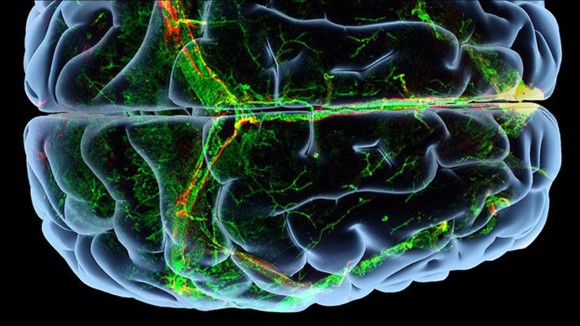Tune in here for the below episodes: iTunes, Google Podcasts, RSS Feed, SoundCloud.
December 2: Neuropsychopharmacology Reviews: The Immunology of Behavior – Exploring the Role of the Immune System in Brain Health and Illness.
The 2017 issue of Neuropsychopharmacology Reviews, "The Immunology of Behavior focuses on the growing appreciation of the immune system in understanding brain and health illness. This podcast synthesizes this year's issue, which showcases a wide range of reviews about the relationship between immunology and brain and health illness, demonstrating how advances in our understanding of immunology have led to novel insights into psychiatric illnesses and their treatment. Hear more from Andrew H Miller, Ebrahim Haroon, and Jennifer C Felger, the editors of this NPPR issue! Related Article.
October 7: LSD Acutely Impairs Fear Recognition and Enhances Emotional Empathy and Sociality.
LSD is not only a well-known psychedelic drug, but it was also studied extensively for its potential in psychotherapy in the early days of its use, about fifty years ago. Those early studies didn't necessarily meet today's standards for clinical trials, and previous research ended in the 1970s, due to changing regulations and a prohibition against LSD. Today, LSD is once again being studied for its therapeutic use, this time in a carefully controlled clinical setting. In a recent study, a team of researchers investigated LSD's effects on fear recognition, emotional empathy, and sociality. Listen to the latest BrainPod, Neuropsychopharmacology's official podcast, to hear Dr. Matthias Liechti discuss this study! Related Article.
May 12: Harnessing Smartphone-Based Digital Phenotyping to Enhance Behavioral and Mental Health.
Smartphones have become nearly ubiquitous in the United States. These mini-computers that we carry around in our bags or pockets have the potential to dramatically influence the practice of medicine, including psychiatry. A team of researchers is currently investigating the use of smartphones for what's known as digital phenotyping, or the continuous monitoring of someone's status via a personal digital device, to enhance behavioral and mental health. Listen to this month's BrainPod to hear Dr. JP Onnela discuss how digital phenotyping is crucial for studying mental health disorders. Related Article.
March 21: Women at the Podium: ACNP Strives to Reach Speaker Gender Equality at the Annual Meeting.
Lately, scientists have begun to pay closer attention to the numbers of men and women who present at scientific meetings. Even in those fields where women are a majority, men dominate speaking roles; in 2011, a group of leaders in neuroscience fields decided to remedy this situation. By the 2015 annual meeting of the American College of Neuropsychopharmacology, women made up 70% of the plenary speaking roles. Listen to this month's Brainpod to hear Dr. Bita Moghaddam and Dr. Raquel Gur discuss the importance of women at the podium, how their approach was successful, and what challenges still remain.
February 9: Abuse of New Psychoactive Substances: Threats and Solutions.
There has been a recent and notable increase in the non-medical use of new psychoactive substances (NPS), or "designer drugs." Unlike classic drugs of abuse, many NPS were initially developed for research purposes. In this podcast, Drs. Michael Baumann and Nora Volkow discuss the complexities of working with these substances and how, given their genesis, research with NPS could be considered "dual use;" or, potentially utilized for both beneficial and malicious purposes. Related Article.
January 12: Does Cannabis Cause, Exacerbate or Ameliorate Psychiatric Disorders? An Oversimplified Debate Discussed.
Marijuana use for medical purposes is becoming increasingly common in the U.S., and doctors prescribe it for ills ranging from headaches to insomnia. And yet, there is little scientific data supporting its medical use. In this podcast, Drs. Margaret Haney and Eden Evins discuss the relationship between cannabis use and two psychiatric disorders: post-traumatic stress disorder and psychotic illnesses, particularly schizophrenia. Related Article.

